Even the most devoted craft baker will admit that not everything about bakery production is spiritually fulfilling.
While it is soothing to laminate your own puff pastry, it might be even more soothing to catch up on the accounts while a dough sheeter does the job for you.
And, with staff shortages, energy price hikes, food inflation and a general cost-of-living crisis to contend with, should even the most committed hands-on baker consider outsourcing some of the work to stainless-steel assistants?
In short, what are the benefits of automated versus manual production for a smaller bakery operation, and what are the considerations to bear in mind before making an investment in machinery?
Automation allows bakers to increase and streamline production without the need for more experienced bakery staff
Potential labour savings are a big factor to consider, with skills and staff shortages a well-reported challenge in the industry.
“Automation provides bakers with a potential solution by allowing them to increase and streamline production without the need for more experienced bakery staff,” suggests Craft Bakers Association operations director Karen Dear.
The introduction of new equipment also enables current staff to be better utilised across tasks that automation cannot account for, such as personalisation, she says.
The time of a skilled bakers is valuable, and automation is increasing in the industry to focus resources where they are needed, points out Brook Food & Bakery Equipment commercial director Ann Wells.
“We are finding more businesses enquire about machines such as a Polin Multidrop depositor, which creates a variation of confectionery products, or the bakers table, which helps with a versatile and fast production of sheeted products, such as pastry lines, shortbread and filled product,” she says. “Being able to speed up their production with great consistency, as well as saving business money, has certainly been a common interest.”
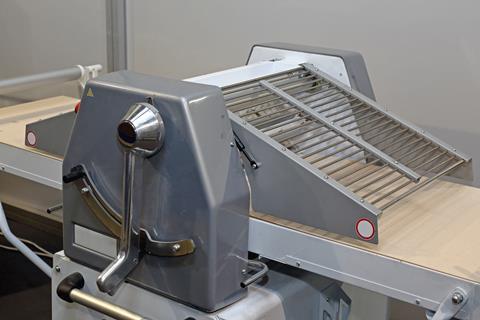
And Mélanie Gay, marketing manager at VMI, comments that automation can reduce human error, particularly where businesses are struggling to recruit skilled bakers. “It helps bakers free themselves from constraints related to staff expertise,” she says.
Automation can even increase staff satisfaction, according to Steve Merritt, managing director of European Process Plant (EPP): “We’ve found that overall job satisfaction can improve, with staff having more responsibility to run entire lines instead of doing single repetitive tasks, which leads to a more fulfilling role.”
Merritt also notes how automation could help reduce the spread of flour and ingredient dusts which can cause respiratory problems, and minimise manual handling, which can cause musculoskeletal injuries.
Boosting quality and productivity
Labour arguments aside, automation has tantalising potential upsides for bakers – it can boost product quality and productivity, with processes replicated and consistency improved. It can also allow bakers to produce larger quantities per hour and per person, without increasing footprint or staff numbers.
The challenge for the bakery owner is to decide how automation would benefit their business.
Start small and look at automating a single labour-intensive process or element
VMI outlines three tiers of automation. The first step, at the mixing level, can be to purchase equipment with an easy-to-use touchscreen interface which can be useful for bakers looking to diversify their production. It can save parameters and recipes to maintain a consistent recipe process regardless of who is carrying out the process. This type of automation does not significantly alter the bakery’s organisation.
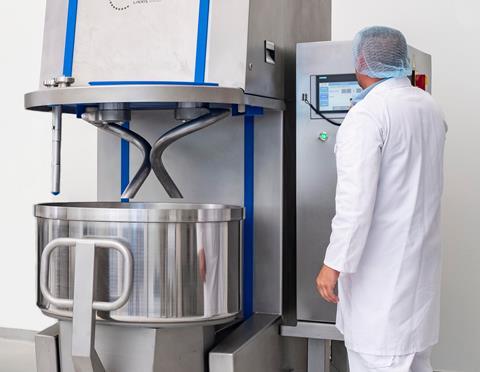
Next, semi-automatic production lines, combine mixing solutions with additional systems such as dosing equipment, elevators, hoppers, and conveyor belts. These assist in moving the dough to the next step in the manufacturing process, such as resting, shaping, or baking. This is for bakers who have significantly increased their volume and want to make daily operations easier.
Finally, an entirely automated manufacturing line from mixing to cleaning would suit an industrial bakery.
“Our advice to customers is to start small and look at automating a single labour-intensive process or element, with machinery such as a sheeting divider that can make a wide variety of shapes, sizes and weights,” suggests Merritt at EPP.
“This will allow you to assess the impact of the automation and give a better perspective as to what wider automation could do for your bakery.”
Where to start?
For a baker starting out on the road to automation, a removable bowl mixer and a bowl tip is a significant timesaver, he says.
Roll plants can also dramatically improve efficiency even in small family bakeries. Other strong automation examples include pie blocking, depositing, slicing, rack loading and unloading, all of which are time-consuming manual processes.
You should evaluate your hero products and see how you can automate these without losing flexibility to produce your lower-volume products, advises Reiser bakery specialist James Fitch.
But for less popular or limited-edition items, such as festive baked goods, it is less likely to be as financially beneficial, due to the time and costs involved in introducing and maintaining new equipment, CBA’s Dear says.
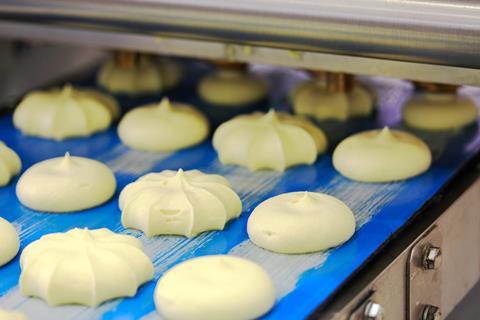
Wells at Brook Food recommends that bakers look to add automation across more repetitive tasks, processes such as depositing, sheeting, and filling. “It’s also within the hands-on moulding, oven loading and unloading, and other handling elements where automation can help, such as the use of mixers and tippers, that aid a continuous production,” she says.
Investing in versatile equipment can offer bakeries flexibility according to Dear, who adds: “Depositors can be used to speed up production of products including pies, muffins and sponges. With minimal training required to run and maintain these machines, the reliance on skilled staff is further alleviated.”
Mixers, meanwhile, have a range of interchangeable tools for many types of products including bread, pizza, cakes, sweet baked goods and creams.
Funding the move
In deciding where to invest, the capital cost is of course the big sticking point.
This is especially felt as equipment often needs purchasing outright, as opposed to monthly payments to staff for labour, Wells reports. However, the payback of equipment automation is long-term consistency and reliability.
Decreasing the workforce and skilled staff required also contributes to reduced overheads for bakery businesses, with improved productivity associated with automation, Dear adds.
But bakeries must consider if they have the time and money to provide sufficient training to staff to ensure new equipment is run efficiently and maintained correctly, Merritt notes.
Introducing new machinery obviously requires significant financial investment to run and maintain. Aside from the initial outlay, energy running costs must also be considered, which in the current climate may prove prohibitive for some bakers.

Space considerations
Another consideration is space, including the surrounding area for necessary access, maintenance, and cleaning.
Utilities and services are vital, so bakers must consider whether they have adequate supplies of electricity, gas, fuel, air. Additional requirements such as oven flues, power cables, air lines and drainage should be part of the early planning.
One key consideration is whether equipment will fit in through regular entry points on site, or machinery may have to be dismantled into smaller components to carry in before rebuilding is required. And don’t forget to check the floor is strong enough.
Bakeries should plan for the time needed to install equipment, which could be as short as a few hours or run into weeks. Time also needs to be set aside to train staff in the use of the new equipment. Regular maintenance should also be budgeted for.
It is also important to keep an eye on the future – planning spare capacity for potential growth can save time, money and disruption in future, Merritt recommends.
With an A to Z of potential positives, from more consistent product quality to health benefits for staff, the argument for assessing what automation might offer your business is strong. As prices of almost everything continues to rise, becoming more efficient can be the difference between a profit-and loss-making situation.
ADVERTISEMENT: BROOK FOOD & BAKERY EQUIPMENT
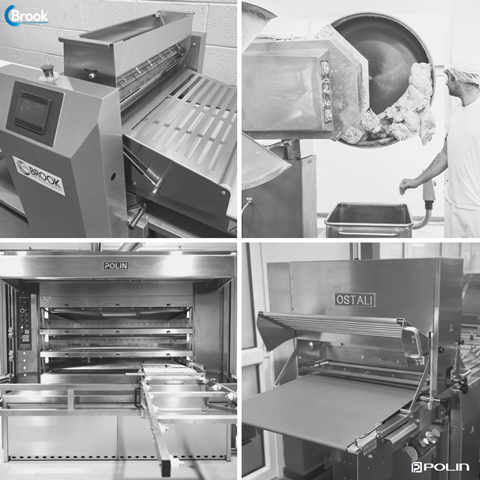
Automation comes in many forms, from initial standalone machines to more complex systems, removing human intervention and saving costs significantly. Automating with the Polin bakery range can help.
Using an automatic sheeter helps you prepare your dough for pastry production. Being a straightforward machine, this will improve consistency in your products.
The Polin Multidrop depositor, replaces manual confectionery skill. Being able to produce different confectionary products, your product uniformity and output will increase.
Bakers can benefit from single setter loaders, a key feature on deck ovens, with automatic loading systems also available.
As bakers make product transfer easier, bakers benefit from using bowl tippers and transfer pumps, with larger bakeries using mixer bottom discharge conveyor systems and carousel systems for bowls in their factory.
For more complex pastry production, implementing a makeup line to process your dough, creating your desired product, will provide versatility as well as continuous use.
To find out more, speak to our expert sales team today.



















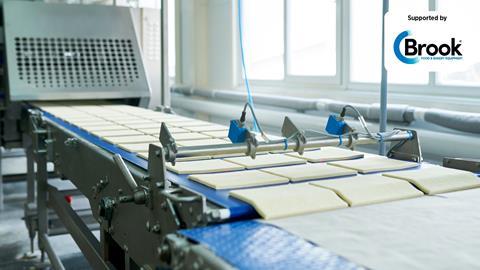
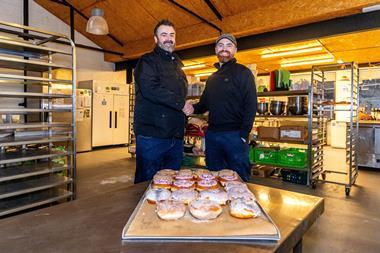
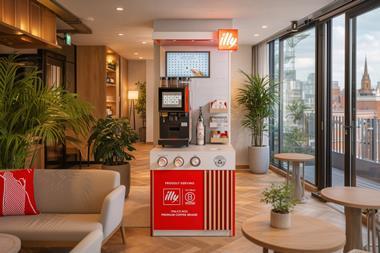

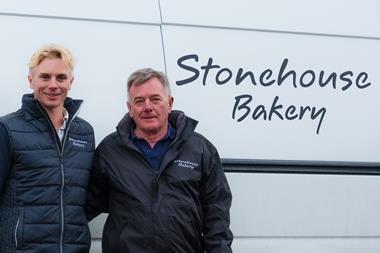



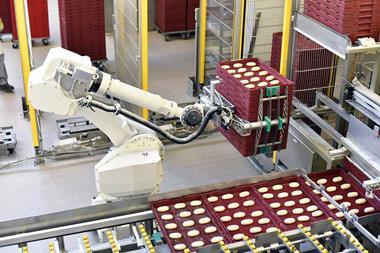
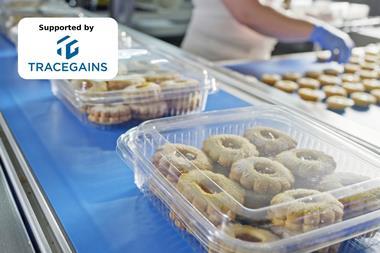

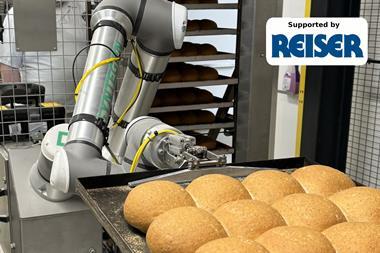
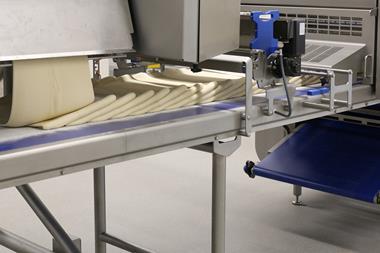

No comments yet